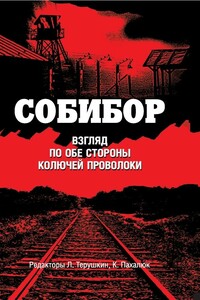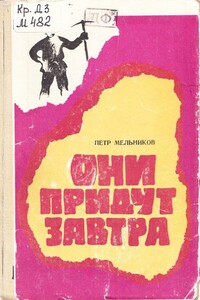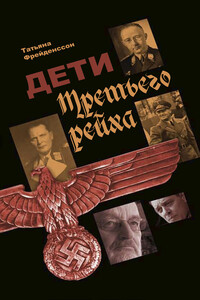The Boy Scouts In Russia - [6]
Fred knew enough of Germany to understand something of what he saw and heard. It was from these great houses that a great many officers were contributed to the army. These young men had no real career before them from their birth, almost, except in the army. So it was easy to guess why the lights were burning in those mansions, and why there was anxiety among them, and why the throbbing motor cars were humming over the roads.
If Germany were beaten back in the beginning, if the task she had undertaken proved too heavy, this was the province that was sure to feel the first brunt of invasion. Behind him, to the east, Fred knew were the great masses of Russia, moving slowly, but with a terrible, always increasing force. No wonder these people were stirring, were sending out all their men to drive back the huge power that lay so near them, a constant menace!
But now, though he did not know it, Fred was approaching real danger for the first time. Many of the motors he saw and heard were going west. Though he could not guess it, they were carrying women and children away from the old houses that were too much exposed, too directly in the path of a possible invasion for the helpless ones to be left in them when the men had gone to fight. All Germany had to be defended. It happened to be the part of East Prussia to bear invasion, if it came to that.
And so the people of the great houses were making their migration. The men went to their regiments; the women to Berlin, and to the great fortresses that lay nearer than Berlin-Koenigsberg, Danzig, Thorn. This was historic country that Fred was traversing, the same country that had trembled beneath the thundering march of Napoleon's grand army more than a hundred years before, when the great Emperor had launched the mad adventure against Russia that had sealed his fate.
But he didn't think of these things, except of Napoleon, as he trudged along. Once more he traveled through the night. Once more, as the first signs of morning came, he began to feel tired, and, despite the food he had carried with him which he had stopped to eat about midnight, he was hungry. And, as had been the case on the night of his tramp from Virballen, the first rays of the rising sun showed him a village. It was in a hollow, and above it the ground rose sharply to a large house, evidently very old, built of a grey stone that had been weathered by the winds and rains of centuries. It was a very old house, and strangely out of tune, it seemed to Fred, with the country though not with the times. It was so old that it showed some traces of fortification, and Fred knew how long it was since private houses had been built with any view to defence. It was a survivor of the days when this whole region had been an outpost of civilization against hordes of barbarian invaders.
One curious thing he noticed at once about the great house. No flag was flying from it, though it boasted a sort of turret from which a flag might well have been flung out to the wind. All the other big houses he had seen had had flags out and the absence of a standard here seemed significant, somehow.
When he entered the village he found that there was no inn. He saw the usual notice of mobilization and the proclamation of war, but the people were not stirring yet. He had to wait for some time before he found a house where people were up. They looked at him curiously, but grudgingly consented to give him breakfast. There was an old man, and another who was younger, but crippled. And this cripple was the one who seemed most puzzled by Fred's appearance in the place. He surveyed him closely and twice Fred caught him whispering, evidently about him.
Then the cripple slipped away and came back, just as Fred was finishing his meal, with a pompous looking, superannuated policeman, recalled to duty since the younger men had all gone to war. This man asked many questions which Fred answered.
"You are American?" asked the policeman, finally. "You are sure you are not English?"
All at once the truth came over Fred. They thought he was English! Then England must have entered the war! They would think that he was an enemy, perhaps a spy! Yet, though he knew now the cause of the suspicious looks, the mutterings, he couldn't utter a word in his defence. He hadn't been formally accused of anything.
"Yes, I'm an American," he said, quietly. "I'm not English. I've no English blood in me."
He had intended to try to get a place to sleep in the village, but now he decided that it would be better to get away as soon as he could. If there had been soldiers about, or any really responsible police officials, he would not have been at all disturbed. But these people were nervous and ignorant; the best men of the place had gone, the ones most likely to have a good understanding. So he paid his little reckoning, and started to walk on.
They followed him as he started. As soon as he was in the open road again, a new idea came to him. Why not try the great house on the hill? There certainly someone would know the difference between an American and an Englishman. He was very tired. He knew that, even if he went on, he would have to stop at some village sooner or later. And if he was suspected here, he would be at the next place.

Нацистский лагерь уничтожения Собибор… Более 250 тыс. евреев уничтожены за 1,5 года… 14 октября 1943 г. здесь произошло единственное успешное восстание в лагерях смерти, которое возглавил советский командир Александр Печерский. Впервые публикуются последняя и наиболее полная версия его мемуаров, воспоминания многих соратников по борьбе и свидетельства «с другой стороны»: тех, кто принимал участие в убийстве невинных людей. Исследования российских и зарубежных авторов дают общий контекст, проливая свет на ряд малоизвестных страниц истории Холокоста.

В книге рассказывается история главного героя, который сталкивается с различными проблемами и препятствиями на протяжении всего своего путешествия. По пути он встречает множество второстепенных персонажей, которые играют важные роли в истории. Благодаря опыту главного героя книга исследует такие темы, как любовь, потеря, надежда и стойкость. По мере того, как главный герой преодолевает свои трудности, он усваивает ценные уроки жизни и растет как личность.

Это суровое документальное повествование не предназначено для легкого чтения. В нем любознательный читатель найдет для себя немало поучительного, узнает о том, как бывшие красногвардейцы, партизаны и чекисты, во главе с коммунистом В. П. Бертиным, при активном содействии обкома партии и правительства молодой Якутской республики, еще при жизни В. И. Ленина, открывали и осваивали золотоносные месторождения на Алдане, и как самые закаленные и упорные из них в составе первой Верхнеколымской геологоразведочной экспедиции высадились на берег Охотского моря и открыли золотую Колыму. Читатель узнает также о том, как старатели и якуты-проводники помогли Ю. А. Билибину, С. Д. Раковскому и П. М. Шумилову найти в жизни более верную дорогу, чем у их отцов, и стать патриотами своей социалистической Родины, лауреатами Государственной премии. Эта книга — о повседневном будничном героизме советских геологов и золотоискателей.

Герои этой книги – потомки нацистских преступников. За три года журналист Татьяна Фрейденссон исколесила почти полмира – Германия, Швейцария, Дания, США, Южная Америка. Их надо было не только найти, их надо было уговорить рассказать о своих печально известных предках, собственной жизни и тяжком грузе наследия – грузе, с которым, многие из них не могут примириться и по сей день. В этой книге – не просто удивительные откровения родственников Геринга, Гиммлера, Шпеера, Хёсса, Роммеля и других – в домашних интерьерах и без цензуры.

В книге рассказывается история главного героя, который сталкивается с различными проблемами и препятствиями на протяжении всего своего путешествия. По пути он встречает множество второстепенных персонажей, которые играют важные роли в истории. Благодаря опыту главного героя книга исследует такие темы, как любовь, потеря, надежда и стойкость. По мере того, как главный герой преодолевает свои трудности, он усваивает ценные уроки жизни и растет как личность.

Автор, один из фигурантов громкого «театрального дела» режиссёра Кирилла Серебренникова, рассказывает историю своего «сопротивления». Книга эта – одновременно и триллер, и крутой детектив, и готический роман ужасов, это и жесткий памфлет, и автобиография. Но как бы ни определить её жанр, это повествование о стойкости, верности убеждениям и своему делу.